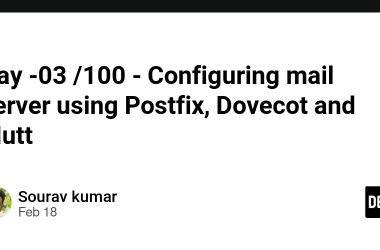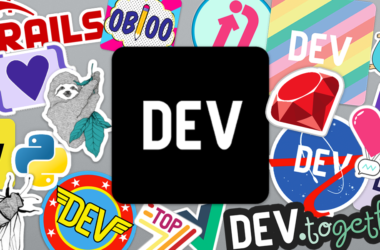Running security scans manually gets old fast. You start with good intentions — “I’ll scan every Friday before release” — but then Friday becomes Saturday becomes “whenever I remember.”
The solution? Automation. But here’s the problem: most security tools don’t integrate cleanly with CI/CD platforms. You end up writing YAML by hand, copying configs between projects, and maintaining a dozen different cron schedules.
I built JMo Security to orchestrate 12+ security scanners (Trivy, Semgreg, TruffleHog, Checkov, ZAP, Nuclei, etc.) with a unified CLI. Version 0.8.0 adds the missing piece: enterprise-grade scheduling and CI/CD integration.
Table of Contents
-
What’s New in v0.8.0
- 1. Kubernetes-Style Schedule Management
- 2. GitLab CI/CD Workflow Generation
- 3. Slack Notifications
- Why This Matters
- Real-World Use Cases
- Getting Started
- What’s Next
- Contributing
What’s New in v0.8.0
1. Kubernetes-Style Schedule Management
If you’ve worked with Kubernetes CronJobs, this will feel instantly familiar:
# Create a weekly security scan schedule
jmo schedule create prod-security-audit
--cron "0 2 * * 1"
--profile balanced
--repo ./myapp
--image myapp:latest
--url https://myapp.com
--backend gitlab-ci
--slack-webhook "https://hooks.slack.com/services/YOUR/WEBHOOK"
This creates a schedule resource with Kubernetes-style metadata, spec, and status fields:
metadata:
name: prod-security-audit
uid: f47ac10b-58cc-4372-a567-0e02b2c3d479
creationTimestamp: "2025-10-28T14:30:00Z"
spec:
schedule: "0 2 * * 1" # Every Monday at 2 AM
jobTemplate:
spec:
profile: balanced
targets:
repo: ./myapp
image: myapp:latest
url: https://myapp.com
notifications:
channels:
- type: slack
url: "https://hooks.slack.com/..."
backend:
type: gitlab-ci
status:
lastScheduleTime: null
nextScheduleTime: "2025-11-04T02:00:00Z"
Schedules are stored locally in ~/.jmo/schedules.json with secure permissions (0o600). No cloud dependencies.
2. GitLab CI/CD Workflow Generation
Once you’ve defined a schedule, export it to a ready-to-use GitLab CI pipeline:
jmo schedule export prod-security-audit > .gitlab-ci.yml
This generates a complete .gitlab-ci.yml with:
- Profile-based jobs (fast/balanced/deep)
- Multi-target support (repos, containers, IaC, web apps, K8s clusters)
- Slack notifications on success/failure
- Artifact uploads (JSON findings, HTML dashboard, SARIF reports)
- Pipeline schedules matching your cron syntax
Example generated pipeline:
# Generated by JMo Security Schedule Manager
# Schedule: prod-security-audit (0 2 * * 1)
variables:
JMO_PROFILE: "balanced"
SLACK_WEBHOOK_URL: "https://hooks.slack.com/services/YOUR/WEBHOOK"
stages:
- scan
- notify
jmo-security-scan:
stage: scan
image: jmogaming/jmo-security:latest
script:
- jmo scan --profile balanced --repo . --image myapp:latest --url https://myapp.com
- jmo report ./results --profile
artifacts:
reports:
sast: results/summaries/findings.sarif
paths:
- results/
expire_in: 30 days
only:
- schedules
notify-slack-success:
stage: notify
image: curlimages/curl:latest
script:
- |
curl -X POST "$SLACK_WEBHOOK_URL"
-H 'Content-Type: application/json'
-d "{
"text": "✅ Security scan PASSED: $CI_PIPELINE_URL",
"attachments": [{
"color": "good",
"fields": [
{"title": "Commit", "value": "$CI_COMMIT_SHORT_SHA", "short": true},
{"title": "Branch", "value": "$CI_COMMIT_BRANCH", "short": true}
]
}]
}"
only:
- schedules
when: on_success
notify-slack-failure:
stage: notify
image: curlimages/curl:latest
script:
- |
curl -X POST "$SLACK_WEBHOOK_URL"
-H 'Content-Type: application/json'
-d "{
"text": "❌ Security scan FAILED: $CI_PIPELINE_URL",
"attachments": [{
"color": "danger",
"fields": [
{"title": "Commit", "value": "$CI_COMMIT_SHORT_SHA", "short": true},
{"title": "Branch", "value": "$CI_COMMIT_BRANCH", "short": true}
]
}]
}"
only:
- schedules
when: on_failure
3. Slack Notifications
Slack integration is built-in. Configure webhooks in your schedule:
notifications:
channels:
- type: slack
url: "https://hooks.slack.com/services/YOUR/WEBHOOK"
Notifications include:
- ✅ Pipeline status (success/failure)
- 📊 Commit info (SHA, branch, author)
- 🔍 Findings count (when available)
- 🔗 Direct link to pipeline
Why This Matters
Before v0.8.0, you had three options:
- Manual scans — Inconsistent, easy to forget
- Hand-written CI/CD YAML — Error-prone, hard to maintain across projects
- Third-party services — Expensive, cloud dependencies, vendor lock-in
Now you have a fourth option:
- Declarative schedules stored locally
- Auto-generated CI/CD configs for GitLab (GitHub Actions coming soon)
- Zero cloud dependencies (except Slack webhooks, optional)
- 100% open source
Real-World Use Cases
Use Case 1: Multi-Environment Security Gates
# Dev environment: Fast scans on every commit
jmo schedule create dev-security
--cron "*/15 * * * *"
--profile fast
--repo .
--backend gitlab-ci
# Staging: Balanced scans nightly
jmo schedule create staging-security
--cron "0 1 * * *"
--profile balanced
--repo .
--image staging:latest
--url https://staging.example.com
--backend gitlab-ci
--slack-webhook "$STAGING_SLACK_WEBHOOK"
# Production: Deep scans weekly
jmo schedule create prod-security
--cron "0 2 * * 0"
--profile deep
--repo .
--image prod:latest
--url https://example.com
--k8s-context prod
--backend gitlab-ci
--slack-webhook "$PROD_SLACK_WEBHOOK"
Use Case 2: Compliance Automation
JMo Security auto-enriches findings with 6 compliance frameworks (OWASP Top 10, CWE Top 25, NIST CSF 2.0, PCI DSS 4.0, CIS Controls v8.1, MITRE ATT&CK). Schedule weekly compliance reports:
jmo schedule create compliance-weekly
--cron "0 9 * * 1"
--profile balanced
--repo .
--image app:latest
--terraform-state infrastructure.tfstate
--backend gitlab-ci
--slack-webhook "$COMPLIANCE_SLACK_WEBHOOK"
Pipeline artifacts include:
-
COMPLIANCE_SUMMARY.md— Cross-framework compliance status -
PCI_DSS_COMPLIANCE.md— PCI DSS 4.0 detailed report -
attack-navigator.json— MITRE ATT&CK Navigator heatmap
Use Case 3: GitOps Workflow
Commit schedules to version control:
# Create schedules
jmo schedule create security-scan --cron "0 2 * * *" --profile balanced --repo .
# Export to GitLab CI
jmo schedule export security-scan > .gitlab-ci.yml
# Commit and push
git add .gitlab-ci.yml
git commit -m "ci: add automated security scans"
git push
# GitLab automatically picks up the pipeline schedule
Architecture Deep Dive
Storage
Schedules are stored in ~/.jmo/schedules.json with strict permissions:
{
"schedules": [
{
"metadata": {
"name": "prod-security-audit",
"uid": "f47ac10b-58cc-4372-a567-0e02b2c3d479",
"creationTimestamp": "2025-10-28T14:30:00Z"
},
"spec": {
"schedule": "0 2 * * 1",
"jobTemplate": {},
"backend": { "type": "gitlab-ci" }
},
"status": {
"nextScheduleTime": "2025-11-04T02:00:00Z"
}
}
]
}
Cron Validation
Uses croniter library for full cron syntax support:
- Standard 5-field cron (
0 2 * * 1) - Extended syntax (ranges, steps, lists)
- Timezone support (UTC default)
- Next run calculation
Backend Abstraction
Designed for extensibility:
- gitlab-ci (v0.8.0)
- github-actions (planned v0.9.0)
- local-cron (planned v0.9.0)
- jenkins (community request)
Getting Started
Option 1: Docker (Zero Installation)
docker pull jmogaming/jmo-security:0.8.0
docker run --rm -it
-v "$(pwd):/scan"
jmogaming/jmo-security:0.8.0
schedule create my-scan --cron "0 2 * * *" --profile balanced --repo .
Option 2: PyPI
pip install jmo-security==0.8.0
jmo schedule create my-scan --cron "0 2 * * *" --profile balanced --repo .
Option 3: GitHub Clone
git clone https://github.com/jimmy058910/jmo-security-repo.git
cd jmo-security-repo
make dev-deps
jmo schedule create my-scan --cron "0 2 * * *" --profile balanced --repo .
Upgrade Notes
Breaking Changes: None. v0.8.0 is fully backward-compatible.
New Dependencies:
-
croniter>=2.0(cron parsing) -
types-croniter(type hints)
Install with: pip install --upgrade jmo-security[scheduling]
What’s Next
v0.9.0 Roadmap:
- GitHub Actions workflow generation
- Local cron integration
- Schedule templating (reusable schedule configs)
- Multi-region scheduling (different timezones per schedule)
- Schedule dependency chains (“run scan B after scan A succeeds”)
See full roadmap: ROADMAP.md
Contributing
JMo Security is 100% open source (MIT OR Apache-2.0 dual-licensed). Contributions welcome:
- 🐛 Report bugs: GitHub Issues
- 💡 Feature requests: GitHub Discussions
- 🔧 Pull requests: CONTRIBUTING.md
Looking to hire? I’m a recent cybersecurity bootcamp graduate (Michigan Tech × Institute of Data, October 2025) actively seeking cybersecurity/DevSecOps roles. JMo Security started as my capstone project and evolved into a production-grade platform. Connect with me on LinkedIn.
Support the Project
- ⭐ Star on GitHub: jimmy058910/jmo-security-repo
- 💚 Support on Ko-fi: ko-fi.com/jmogaming
- 💰 Sponsor on GitHub: github.com/sponsors/jimmy058910
- 📧 Subscribe to newsletter: jmotools.com/subscribe.html
Links:
- Documentation: docs.jmotools.com
- Blog: blog.jmotools.com
- GitHub: github.com/jimmy058910/jmo-security-repo
- PyPI: pypi.org/project/jmo-security/
- Docker Hub: hub.docker.com/r/jmogaming/jmo-security



